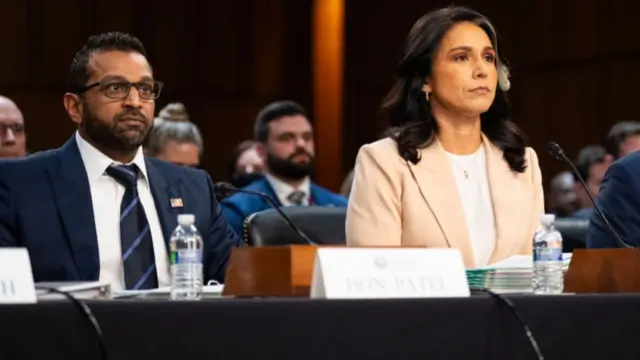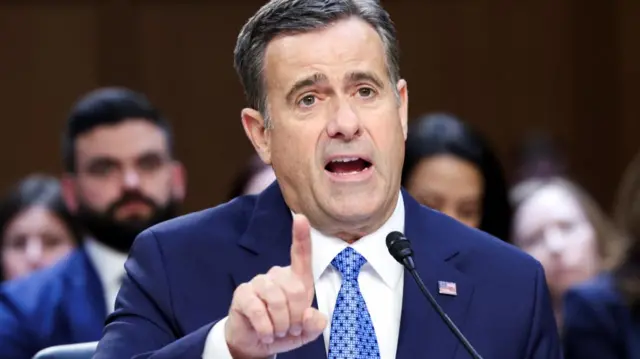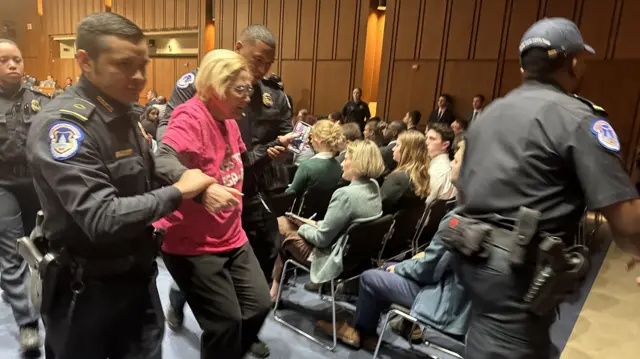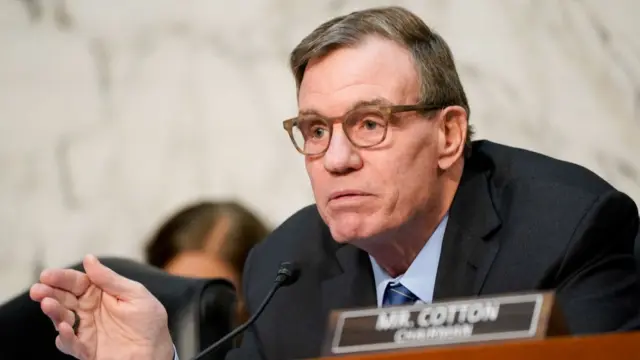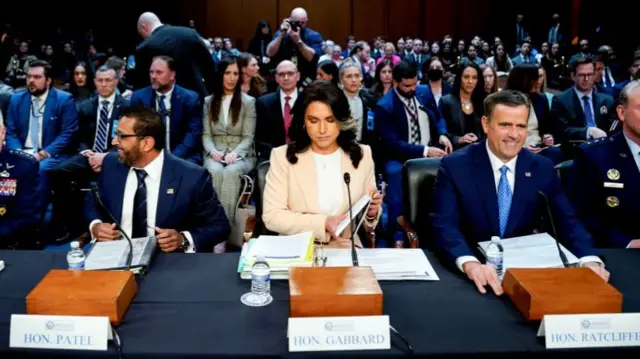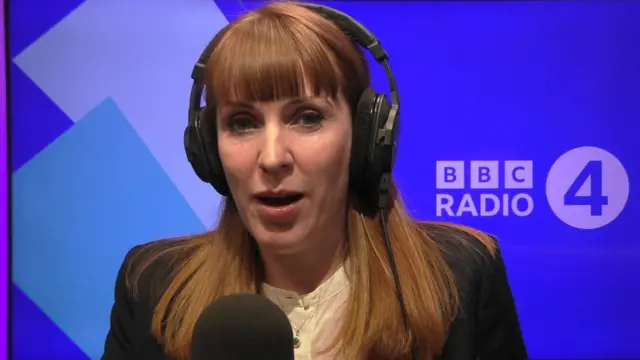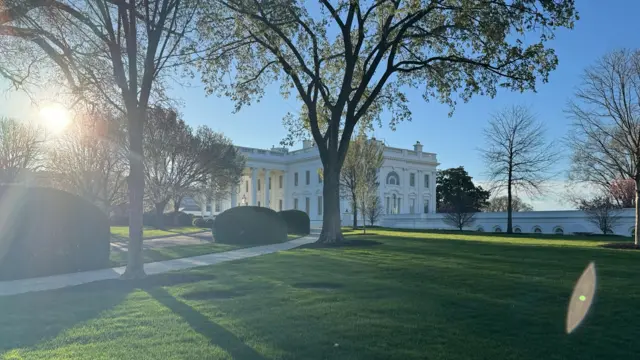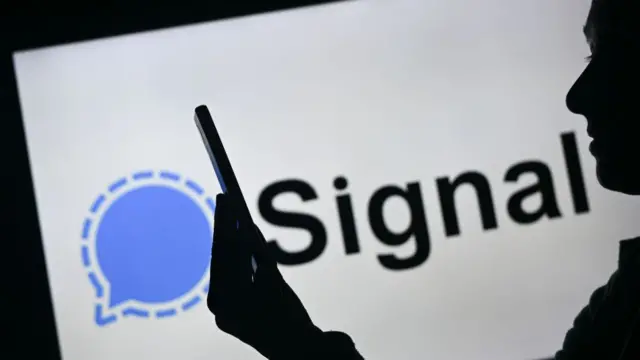Republican acknowledges concerns over 'serious leak'published at 15:19 GMT 25 March
 Tom Bateman
Tom Bateman
US State Department correspondent
I’m sitting on the press benches of another Senate committee - on foreign relations - where Republican chairman James Risch has just acknowledged concerns about what he called the "serious leak" of information.
That came after the leading Democrat on the committee Jeanne Shaheen called for the committee to express its concerns about the recent news of "sharing classified information".
She pointed out that Trump's top diplomat - Secretary of State Marco Rubio - was on the group chat. She said the committee must ensure the government was “safeguarding critical information” as the law requires.
The chairman said he had spoken to Rubio about it on Monday.
"He is really aware of these kinds of things, we have leakage that happens from time to time," said Risch.
"I can assure you that his knowledge is such and his commitment is such that he had no knowledge of there being the tap on [the chat group] that there was when he was communicating."
Risch added: “I don’t think there’s anybody that wouldn’t be concerned about a serious leak like this."
